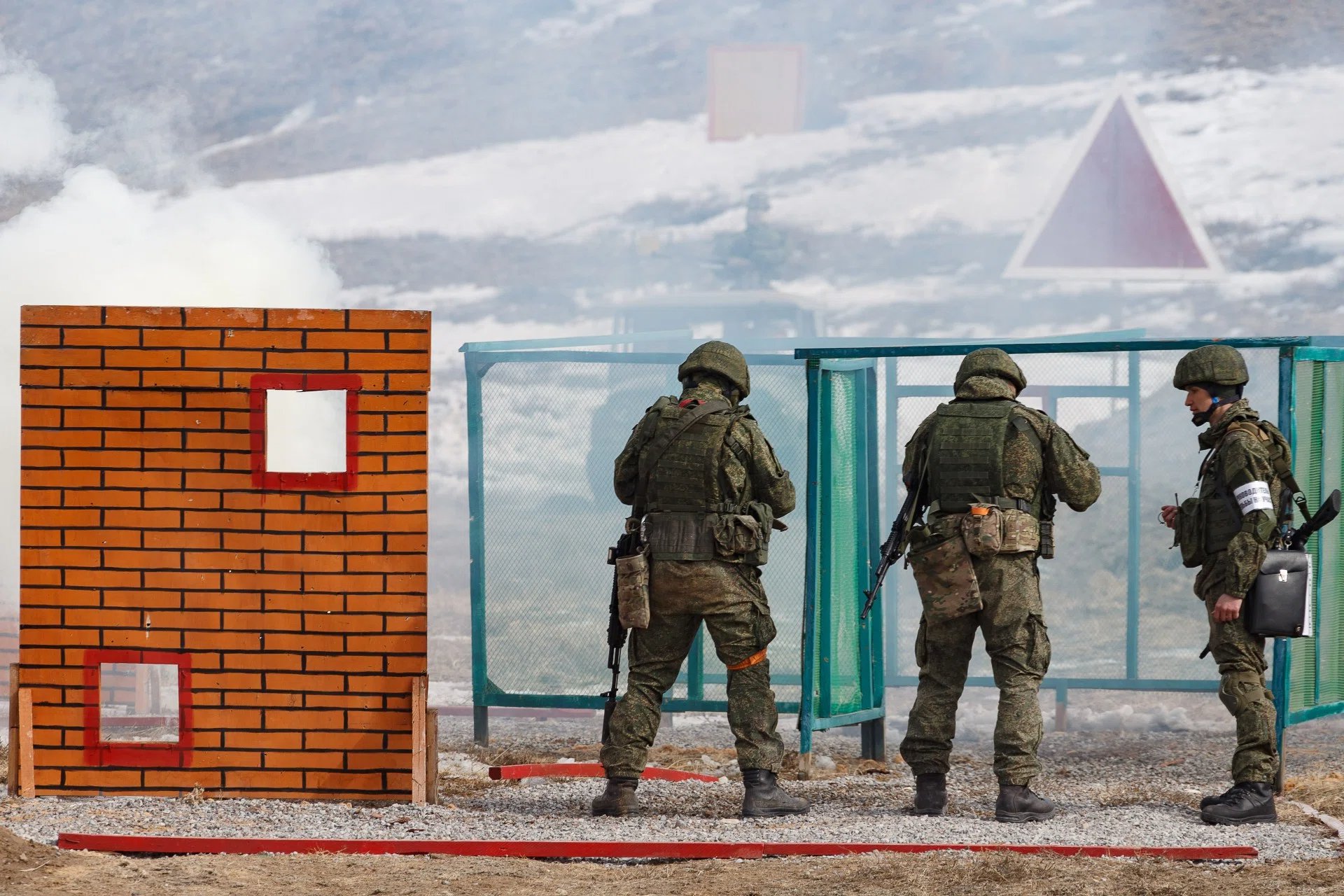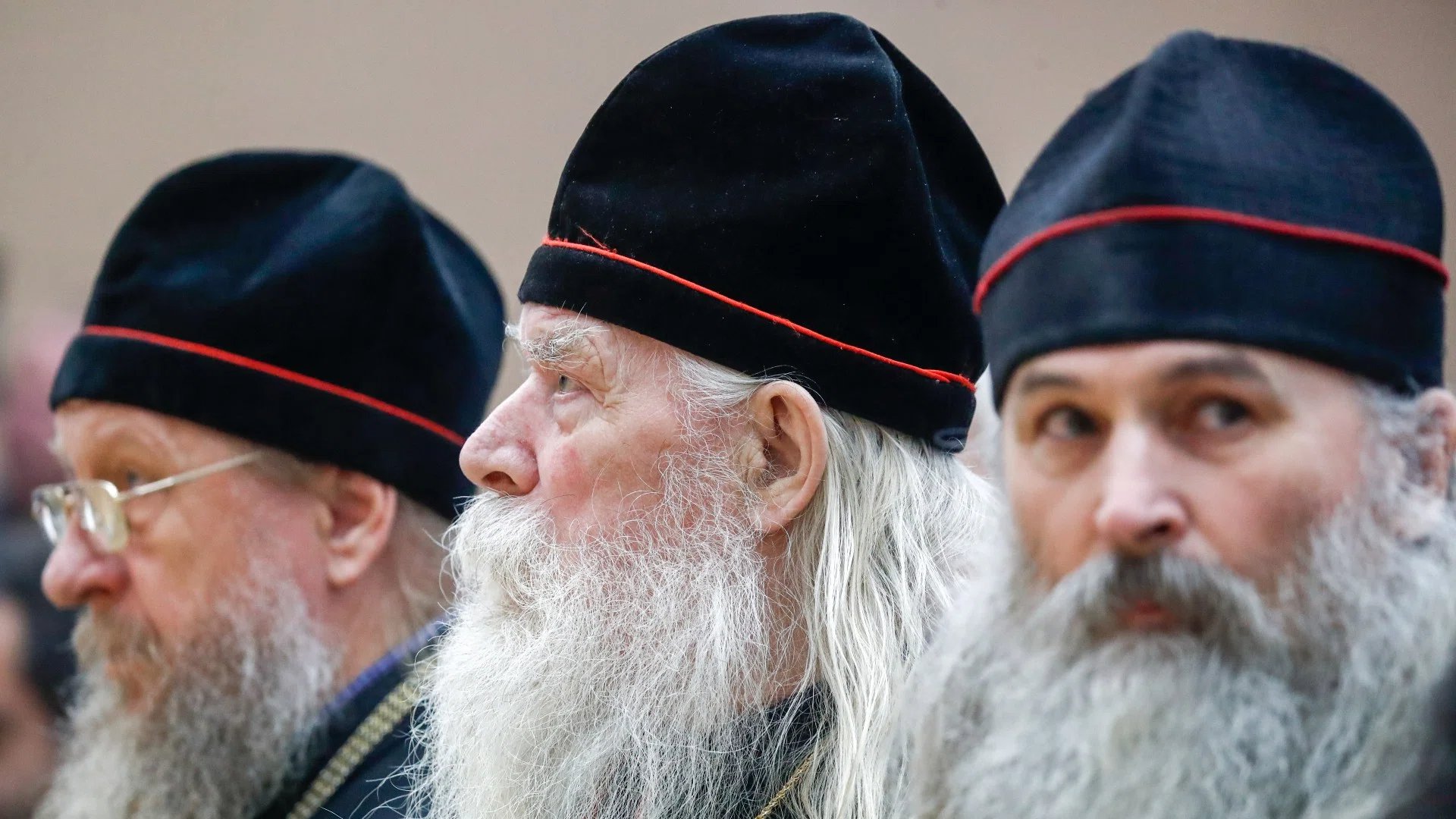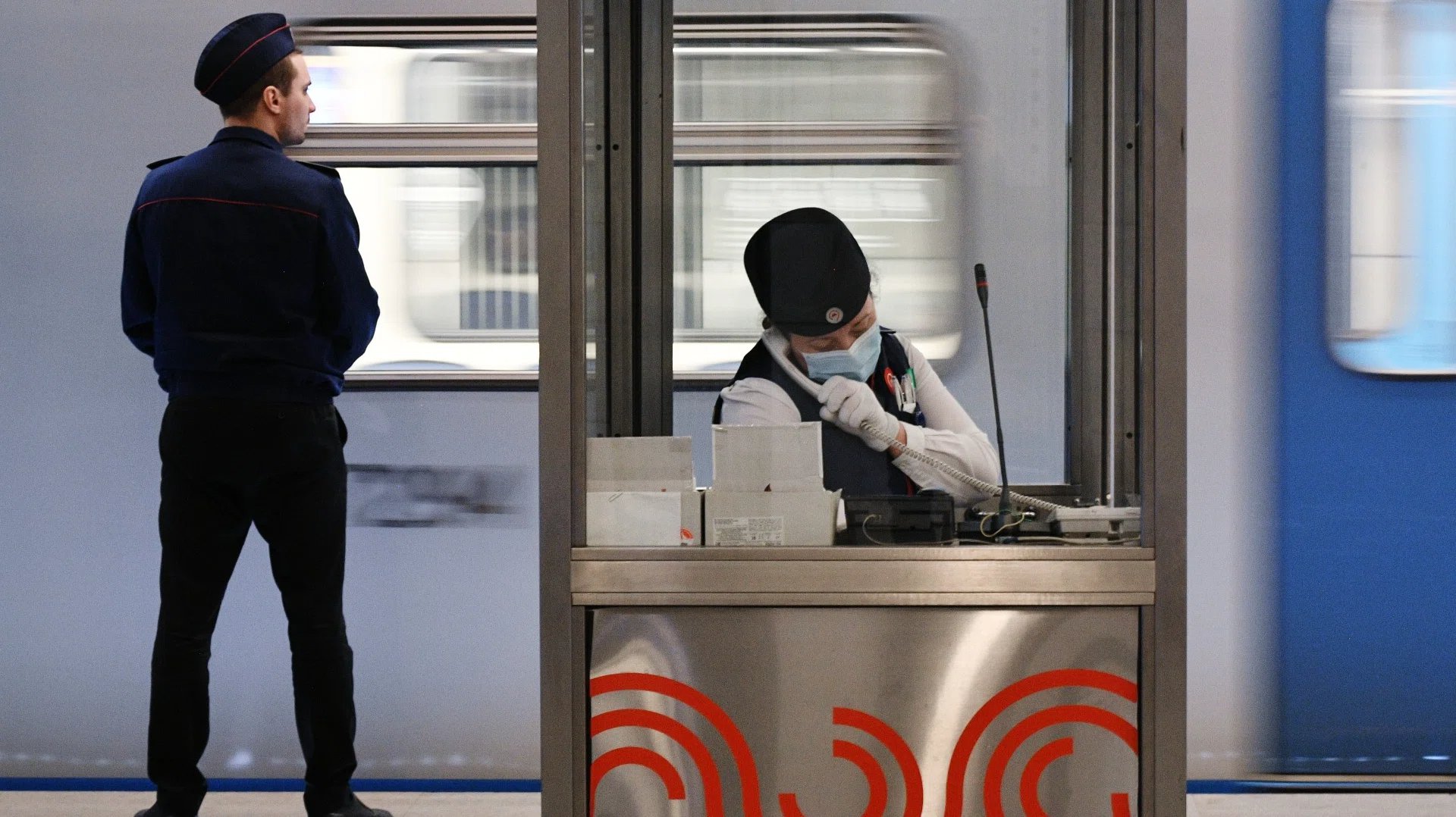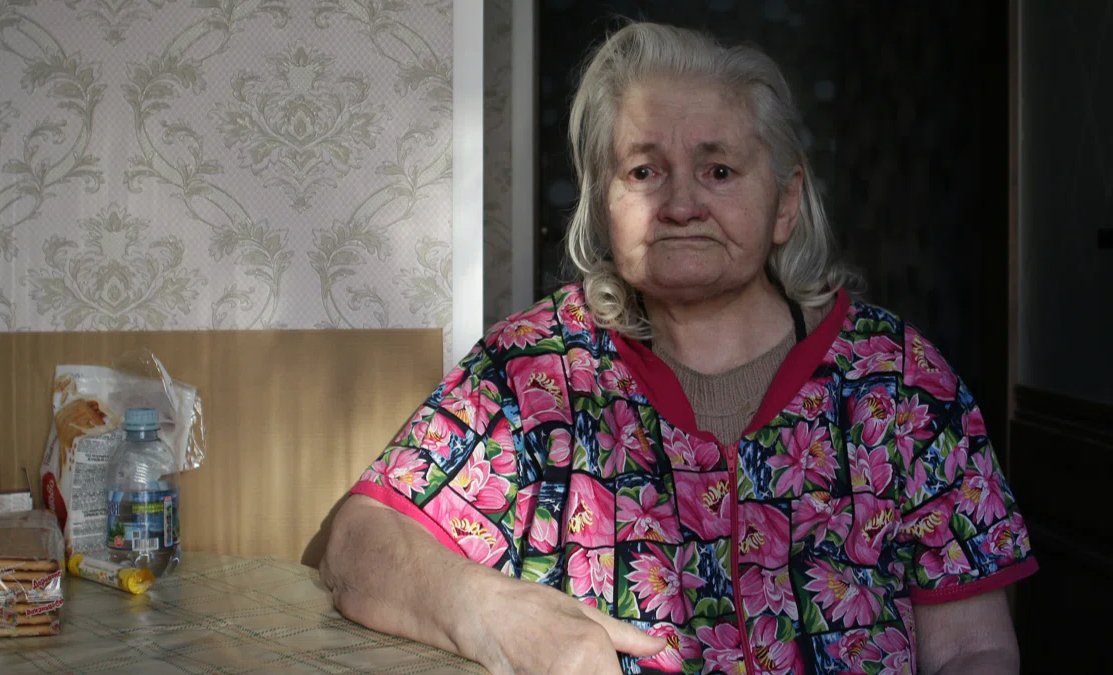
Here what’s in store for you this week:
- Russia’s military spending is 4th largest in the world, but the soldiers are sent to Siberia to learn survival skills from an ultra-conservative and isolated Orthdox communities;
- In another wave of political persecutions, mass firings at Moscow subway target exclusively Navalny supporters;
- Plus, we tell a story of a Russian woman that encapsulates sheer government disregard of elderly in the country.
Want to get the full story? Click the links below for full-length articles in Russian.
Ultra-Conservative Sect Trains Russian Special Ops
Our most-read story this week was a bizarre dive into how the Russian ultra-conservative Orthodox sect is training Russia's special forces in the art of wilderness survival skills. Our Siberian correspondent Alexey Tarasov explains why and how Russian army ended up taking tips from the Old Believers about sleeping in the snow, making fires from scratch and even surviving on sustenance from trees.
'NATURE IS A POWERFUL ALLY; YOU JUST NEED TO BE ABLE TO UNDERSTAND IT,' Russian defense minister Shoigu said, presenting the initiative. Now the Russian army sends their best to the Orthodox fundamentalist communities of The Old Believers. They split from the Orthodox Church around the 17th century, claiming it reformed too much from 'the original scriptures.' Over the following centuries, they suffered constant persecution. Nowadays, they live simple, self-sustaining lifestyles in communities in Russia's Far East. Think of them as a Russian version of Plain People in America, like Amish or Mormon fundamentalists. Tarasov reported on these communities extensively back in 2018.
AT ONE WITH THE NATURAL HABITAT. Fundamentalist Old Believer communities understand the forests, rivers, and lakes and the various complexities of navigating life alone in the wilderness. "They are fully aware of how to behave, treading the border of life and death and how to emerge victorious every time," writes Tarasov. They refuse pensions, maternity payments, and all state benefits. Trails are barely visible, some roads are seasonal, and many only historically survived through skillfully hiding. They have learned to cope with natural hazards, such as bears, ticks, and ice floes.
'RUSSIAN SHAOLIN' LOOKS MORE LIKE AN EXPLOITATION OF A PERSECUTED MINORITY. The defense ministry television channel, Zvezda, recently aired a new report on how the special forces have been training for survival in chest-deep snow drifts around Tuva, southern Siberia, close to the Mongolian border. Shoigu says of the Old Believers: "They are very experienced in life, resourceful. They can fell [trees] for a house, a banya … and travel by horse." However, the report neglected to show any of the Old Believers themselves. But Novaya's Tarasov managed to speak with them when he visited, recognizing their unwillingness to discuss any new cooperation with the ministry of defense. Here's a small excerpt from one of those conversations:

REPORTER: "And what, Vakum (a pseudonym), really, your Old Believers cooperate with the Ministry of Defense? Are you providing your people as instructors? Leading alpine snipers and scouts through the mountains, teaching survival courses?"
VAKUM: "Well…"
REPORTER: "Are they genuinely teaching how to survive winter in the taiga? Sleep in snowdrifts and guzzle bark?"
VAKUM: "Well, how will you survive the winter without anything? If you're this stupid that you went out to fight in the taiga, you probably don't deserve to survive.
REPORTER: "So the people were at the order of the military?"
VAKUM: (hesitating, looking around for a way to escape the chat) "They will survive."
CENTURIES-LONG HISTORY OF PERSECUTION. In this area specifically, six monasteries were destroyed. Families left during and after the Russian revolution when religions were persecuted. You do not want any attention: this is your first survival skill, Tarasov notes. This might be a contributing factor in their insularity and reluctance to go on camera.
BACKSTORY. Inflated militarism is an integral part of Putin's rule. Despite having a medium-size economy, the Kremlin spends tens of billions annually on the army (that's aside from undisclosed budgets for foreign military operations.) Russian military budget has been rapidly growing in recent years and now is the 4th-largest in the world, trailing only the U.S., China, and India. It was over $60 billion in 2020. Part of this push is an aggressive military expansion in the Arctic. However, corruption among Russian military ranks has been rising in sync with bloated budgets. Abuse and hazing culture is also widespread in the Russian army.
Read Tarasov's piece on the Russian military embedded with Orthodox fundamentalists in full here.
Subway Workers Targeted for pro-Democracy Sentiments
The Moscow Metro, the fifth-largest subway system in the world, is hit with wide-scale layoffs. According to the underground transit system's trade union, nearly 150 people (out of 60,000+ employees) have suddenly lost their jobs. Our correspondent Daria Kozlova talked to the dismissed employees and found out one thing that linked them all — public support for the imprisoned opposition figure Alexei Navalny.
LAYOFFS LINKED TO POLITICAL ACTIVITY. The 150 employees are thought to have been laid off after they (or their relatives, in some cases) registered for pro-Navalny solidarity protests. Deputy head of the union, Vasily Shelyakov, alleged that workers were given the choice of either resigning or being fired for absenteeism.
FIRED AT SPOT. One such case was escalator attendant Evgeny Zhdanovich. On the morning of April 23, he was asked to visit the personnel department at Krasnoselskaya. "They gave him papers to sign," writes Kozlova. It did not seem too strange as he had been expecting a payroll transfer. "When Zhdanovich began to sign the documents, he realized that he had received a notice of employment contract termination as agreed by both parties. "You are free," they told him. The mutual agreement would mean that workers were not eligible for severance benefits. In informal conversations, managers told employees they were being fired because they registered their intent to attend future pro-Navalny rallies or had done so in the past. But how would the authorities know all the names in advance?

Поддержите
нашу работу!
Нажимая кнопку «Стать соучастником»,
я принимаю условия и подтверждаю свое гражданство РФ
Если у вас есть вопросы, пишите [email protected] или звоните:
+7 (929) 612-03-68
A LEAKED LIST OF NAVALNY SUPPORTERS IS WEAPONIZED BY THE GOVERNMENT. In April, Navalny's team noted that there had been a massive email leak at their end, in which Navalny supporters and allies had their email addresses leaked — and in some cases professions — to the general public. Navalny's team called it a cyber attack. It blamed a rogue employee who they suspected later of being an FSB recruit. After the leak, registered supporters began to receive letters containing their personal data and threats to send letters to their respective employers.
NO OFFICIAL COMMENT, AS USUAL. Novaya Gazeta requested an official comment from the Moscow Metro administration, but their press service kept silent. "If they keep firing so many people are fired, the subway will stop," Shelyakov stated indignantly. "We will file a claim for illegal dismissal. Even people on sick leave are being fired, and this is completely outrageous.'
BACKSTORY. In February, Navalny was charged with violating the terms of his parole concerning a years-old embezzlement case (2014), thought to be politically motivated, and sentenced to more than two years in a penal colony. After returning to Moscow, his arrest and incarceration came almost immediately after recovering from a poisoning attempt and subsequent hospitalization in Germany. Navalny's new detention sparked mass nationwide protests. Russia's security forces locked up thousands of protesters who took to the streets across the country in the aftermath. That was followed by mass arrests of Navalny's supporters and a broader crackdown on Russian civil society and journalists.
Read a full report on politically-motivated layoffs at Moscow Metro here.
Russia’s Problem with Severe Poverty Among Elderly, Illustrated
This story touched and enraged a lot of our readers last week. We profiled an 84-year-old Moscow resident who was forced by city authorities to live in life-threatening and degrading conditions in one of the wealthiest cities in the world.
13-YEAR NEGLECT. Alexandra Kovaleva (or Baba Shura, as her neighbors call her) has been dutifully paying for utilities at her home. Nevertheless, for the last 13 years, she hasn’t seen any running water, electricity, or even functional sewage disposal. She lives in a dilapidated, water-damaged communal apartment with just her cat for the company — and was forced to appear in court last year for non-payment of debt on utilities that have been disconnected for more than a decade.
FAINTING FROM HUNGER ON THE STREET. Last year, she fainted on the street with hunger. She did not even have the energy to get up. This month, after writing off debts and paying for her communal apartment, she had 1,500 rubles ($20) left upon which to survive. Hers is just one of several similar, sad stories – of a lonely elderly woman who can no longer afford the essential dignities of staying alive amid falling or stagnated incomes across all Russia.
LIVING IN EXTREME POVERTY IN THE CITY BLOATED WITH ULTRA-RICH. Born in 1937 and living through the war, Baba Shura later found work in a factory. However, one day, a beam fell on her, breaking her collarbone. It wasn’t recorded as a work injury, and in 1975 she was provided with a Moscow apartment and asked to resign, having a daughter by a man who beat her and then left. She worked in low-paying jobs, and in 2009, her daughter fell sick. 10 years later, she died. She couldn’t even afford a proper funeral. Meanwhile, her own city grew to house the 25th-largest urban population of billionaires in the world. Kovaleva’s story resonated with so many Russians because it marks growing public frustration with widening income inequality in the country, which worsened during the pandemic.
Baba Shura has “lost her reaction times, intelligence, and mobility. She also lost her family. She clings to her two-room apartment not as a living space, but as the last island of life that is given to her,” our reporter Nataliya Chernova writes.

AUTHORITIES CUT KOVALEVA OFF GAS AND RUNNING WATER IN 2008. It was in this apartment, without any amnesties, that she had to care for her sick daughter — and it was during her sickness that her electricity was cut off — again, on account of an alleged debt. When her daughter died, her world collapsed, and fighting anything became incredibly tough. Some anti-poverty activists provided her with sporadic assistance, but it doesn’t compensate for a dignified income. In August 2020, as a defendant in court, she was issued with a notice demanding 550,000 rubles ($7,500) — or her utilities would be cut off. The utilities had not functioned since 2008. Somehow, she still survived, washing with vinegar and eating bread and cottage cheese.
IF SHE GOES TO THE HOSPITAL, SHE FEARS SHE WILL LOSE HER APARTMENT. While Baba Shura requires medical treatment herself and has previously been hospitalized for severe anemia, she will not leave her apartment to seek it over fears that it will no longer be there when she returns. The last time she sought treatment, her neighbor attempted to illegally sell her apartment. When she returned, many of her possessions were missing — a part of the still pervasive culture of aggressive takeovers of precious real-estate in Moscow.
BACKSTORY. Ever-increasing debt and poverty are a massive burden on the lives of Russians, especially the elderly population. Putin’s state of the nation address at the beginning of last year swore to eliminate poverty in the provinces, as starving pensioners would line up for giveaways of expired foods. However, this heart-wrenching case is happening in the nation’s capital city. The pandemic has undoubtedly made the situation worse. Last March, authorities in Moscow announced measures forbidding people over the age of 65 from leaving their homes, with the city offering just 4,000 rubles (around $50) in compensation. Some 21 million Russians live below the poverty line, with the state-defined minimum wage equating to 10,800 roubles (about $165) a month. Income inequality has been growing in Russia for years. After the pandemic, Russian citizens are expected to be about 10% poorer than they were in 2013. But despite the socio-economic ills that poverty brings, no political force in Russia aims to build its program on eradicating it.
Read all about Granny Shura’s struggles here.
Bonus Corner
- ANNIVERSARY OF POLISH PRESIDENTIAL PLANE CRASH IN RUSSIA. Novaya columnist Yulia Latynina has picked apart the 2010 Smolensk air disaster when a Polish Tu-134 crashed in Russia, killing the Polish president, Lech Kaczyński, and several key officials. The plane was completely destroyed, and 96 people died on the spot. In the investigation, she concludes that the crash was the consequence of a combination of factors – as opposed to an FSB operation or a deliberate explosion. However, Russia still has a great deal to hide from the international community. For example, Smolensk-Severny was an unsuitable airfield, the dispatcher who landed the plane had only landed eight planes the previous year, there were no normal takeoff and landing lights at the airfield, the surroundings were overgrown with trees, among several other factors. Eleven years have passed, but no one in Russia has been charged in this criminal case. Russia has not allowed an international investigation into the crash of Kaczynski's plane. The reason is clear: a complete lack of staff professionalism and an unmaintained airfield were clear contributory factors in the crash. Read all about it here.
- JOURNALIST ROMAN PROTASEVICH AND HIS RUSSIAN GIRLFRIEND KIDNAPPED IN MINSK AFTER PLANE HIJACKING. We closely follow a recent drama in Belarus, where authorities were forced to land an EU domestic flight and kidnapped from it a dissident Belarusian journalist Raman Pratasevich and Sofia Sapega, a Russian citizen and Pratasevich’s girlfriend. We asked independent experts for insights on how Belarusian KGB managed to snatched Lukashenka critics from a plane in mid-air. “In theory, it is possible to assume that the information could have been obtained from a compromised airline employee, but this is highly unlikely,” says our investigative reporter, Denis Korotkov. More likely, he says, is that they used external surveillance, or agents surrounding Pratasevich and/or his acquaintances, by gaining unauthorized access to Pratasevich's electronic resources, and by tracking open-source information on social networks.
Поддержите
нашу работу!
Нажимая кнопку «Стать соучастником»,
я принимаю условия и подтверждаю свое гражданство РФ
Если у вас есть вопросы, пишите [email protected] или звоните:
+7 (929) 612-03-68